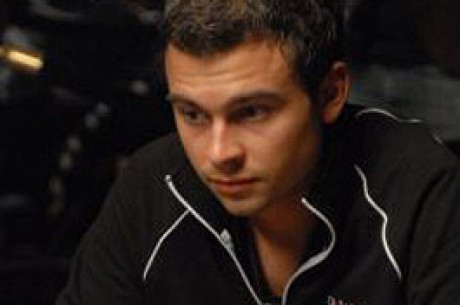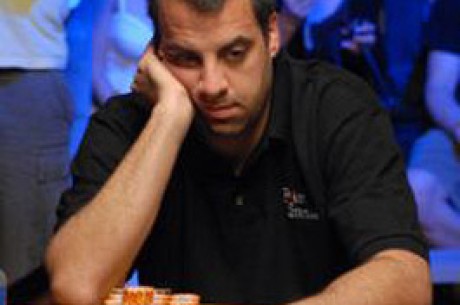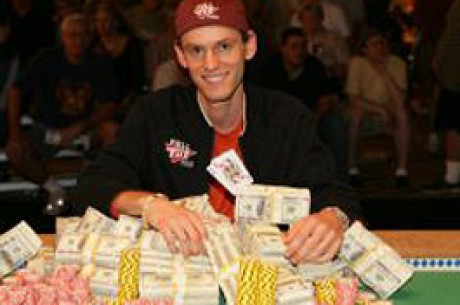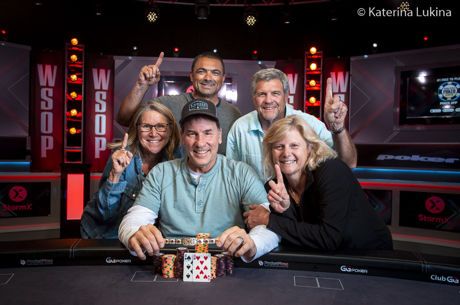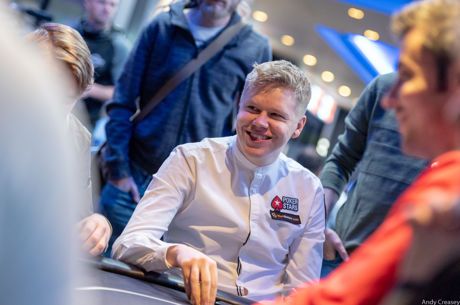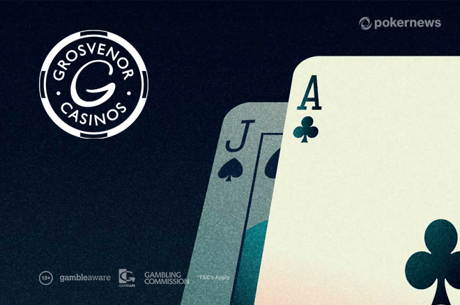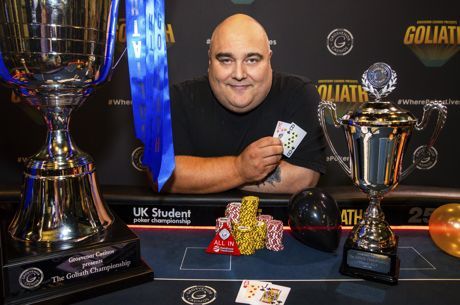WSOP Final Table Updates �C Douglas Kim- 7th Place
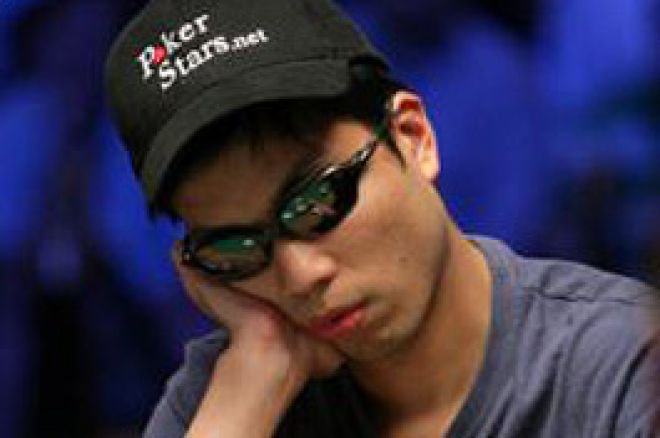
Five hours into play, the final table was narrowed down to six when Doug Kim was eliminated in 7th place. After Kim smooth-called a $700,000 raise preflop by Paul Wasicka, the flop came down 4d-4s-3s. Wasicka bet $1 million, and Kim moved all-in. Wasicka called immediately and showed pocket queens, while Kim flipped over pocket nines. The turn and river came blanks, and Kim was eliminated in 7th place, winning $2,391,520.
Explaining his thought process before the flop, Kim commented, "I was calling to see a good board that I could push nines with. I wasn't short enough to push all-in. I had position and I could see what he did after the flop. It's almost automatic that both of us played our hands the way we did after the flop."
Kim expressed no regrets about busting out in seventh, despite sporting a very healthy stack before he was eliminated. He noted, "When I was playing the tournament, you can't really focus on the numbers because then you're not playing for first. There were two other short-stacks behind me and I could easily have waited to move up two pay levels, but you can't really think about that. You have to try to maximize your chances at first place and worry about the money later."
Kim also seemed happy with his play in general throughout the day. He stated, "I had several good hands and key bluffs against good players like Allen Cunningham. I felt like I was going on a rush. All I needed was some good cards to neutralize the situation with all of the big stacks."
The biggest stack that he was referring to was chip-leader Jamie Gold, who was on Kim's direct left all day. With Gold being incredibly aggressive, Kim was in arguably the worst position at the table. Commenting on playing with Gold, he reflected, "It's definitely a disadvantage to sit next to a pretty loose, aggressive player because at any moment, he could put you at a decision for all of your chips. He can make loose calls in position, and position is everything in no limit hold'em. He's got a big stack, and he can push me around so my strategy was to trap him with a hand. I couldn't do that and the one time I caught queens up on him, he folded."
The World Series was Kim's first major tournament, and he noted that he learned a lot on playing live tournament poker. "The biggest lesson I come away with is that you get a sense of how fatigued you can get and how that affects your play. You can't go on tilt and you have to make the best decisions possible. I took some big beats, but I was just like, 'You have to shrug that off and think about the next hand.' If they show you a bluff, you can't let it get to you."
Kim learned primarily how to play online and also at home games while at Duke, where he played with established online poker player and chip-leader through various stages of the Main Event, Jason Strasser. Strasser reminisced, "Freshman year, they had a $20 buy in game and I was probably the worst player there, and Doug was middle of the pack. We bumped the stakes up a little bit to $1/1 blind, no cap no limit game. I play a lot with Doug, played with him for three years. Doug really developed on his own for the most part. He got very good online, and he posts a lot on two plus two, which helped him a lot." With their excellent poker minds, the two should be making news in the poker world for years to come.

